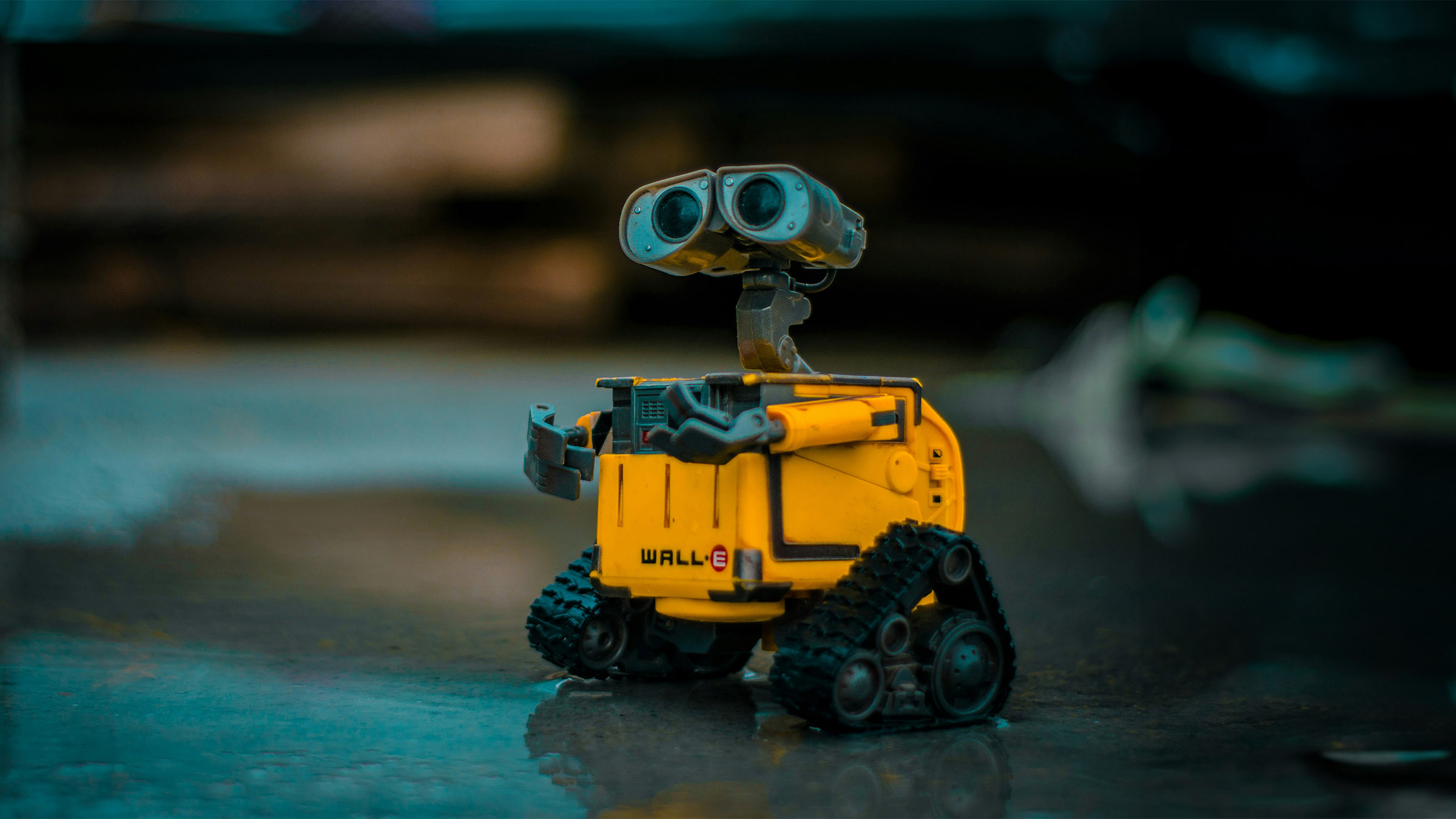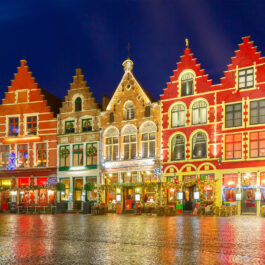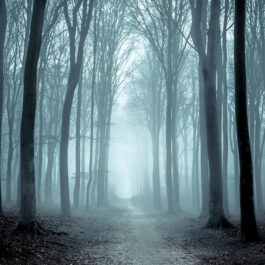While the month of April sees the annual observance of Earth Day – a time to appreciate nature’s gifts and focus on preserving them for future generations – environmental issues are front of mind more often than not these days. They’ve also been a topic of interest in cinema for decades, particularly as we look ever more urgently for ways to be more mindful about our planet’s phenomenal but finite resources. Intended both as warnings of a potentially turbulent future and reminders of how beautiful life on Earth can be, the following films offer a cinematic view on environmental challenges – and can even change the way we think about how we treat our planet.
An Inconvenient Truth (2006) – A documentary that sparked a revolution. Some filmmakers win Oscars for their work, but former US presidential nominee Al Gore won not only an Academy Award, but also the Nobel Peace Prize for his impact on societal awareness of climate change. This incredible, evidence-led film made a generation stand up and take notice, so much so that it has become part of the school curriculum in many education systems around the world. Hopefully, we can take the lessons we learned and create a better future.
I Am Greta (2020) – Swedish climate activist Greta Thunberg was just three years old when An Inconvenient Truth came out, but in her short time on this planet, she has done an awful lot to protect it. The now-21-year-old became the voice of her generation’s climate concerns when, in 2018 at age 15, she made international headlines for skipping school in protest of her government’s climate policies. Her speeches and words of wisdom have inspired millions, leading her to speak at the UN, debate world leaders, and become TIME Magazine’s Person of the Year in 2019. This film celebrates Thunberg’s rapid rise, as well as the gains achieved by what the media describes as “The Greta Effect”.
The Day After Tomorrow (2004) – The first film many think of when it comes to Hollywood movies about the environment. After years of flicks about aliens and asteroids destroying the planet, director Roland Emmerich (Independence Day) made the villains our own hubris, showing US landmarks buried in snow and world-famous locations destroyed by the might of nature as a result of catastrophic climate change. Focusing on individual stories amidst an apocalyptic storm, the film’s title and story warn that this scenario could become nonfiction if we don’t all work together.
Wall-E (2008) – At the height of their power, Pixar made an incredibly sweet love story about two robots… which just happened to be set on an abandoned Earth! The eponymous Wall-E is a debris-cleaning robot, in charge of clearing away the garbage and waste on an Earth that has become uninhabitable due to human greed and its accompanying ecological irresponsibility. A tender and extraordinary film, it tackles the grim threats of climate change while wrapping its message in hope, suggesting that it’s never too late to make a change for the better. The optimism of this small robot who communicates in nothing but beeps still inspires environmental commentators, who look to it as a great film for teaching about the importance of sustainability.
The Year the Earth Changed (2021) – The legendary Sir David Attenborough explores an empty world of a different sort in this documentary about the environmental effects of the 2020 global lockdowns. Chiefly, we see how animals return to public spaces as humans stay inside, and how an absence of consumption for even a short time can revitalise their various ecosystems. While you might fear that this means the world is better without us, the film actually argues that, with a little thought, there’s enough space for everyone.
Dark Waters (2019) – Marvel star Mark Ruffalo fought hard to get this passion project off the ground. It’s the story of environmental attorney Robert Bilott’s real-life case against a chemical giant accused of dumping harmful materials into a small town’s water supply. The film is a testament to the power one person can wield to save lives, as we follow Bilott’s years-long battle against enormous odds to make a better tomorrow, and to find justice for those he represents. As a result of his efforts, many of the products we use to cook and eat around the world have become safer for us and less harmful to the planet.
Blackfish (2013) – This haunting but powerful documentary investigating the treatment of captive orcas changed the way we think about sea life conservation, and even led to US authorities introducing measures such as The Orca Welfare and Safety Act to protect captive whales in the state of California; other states would also put forward similar proposals. One of the companies in the film, marine-themed attraction park SeaWorld, also phased out entertainment shows involving orca whales. As tough as the stories were to tell, this truly is a film that changed hearts and minds.
Waterworld (1995) – It’s remembered as a box-office flop, but thematically, Kevin Costner’s vision of a world with no land was ahead of its time. Opening with a striking vision of sea levels rising, Costner plays a drifter seeking out the mythical “Dryland” alongside a woman whose daughter is believed to hold the secret to the rumoured place. It’s as outlandish as it sounds, offering as much Hollywood spectacle as it does insight into climate change, but it’s worth noting as one of the first big-budget movies to truly consider where the world may be headed without intervention.
My Octopus Teacher (2020) – A touching documentary about connecting with the natural world around us. South African filmmaker Craig Foster spent a year documenting his growing friendship with a wild octopus who teaches him about the value of life. It’s a tear-jerker, certainly, but the stunning underwater photography and personal journey Foster takes us on leads viewers to look at how the natural world both above and below the surface of the sea can reveal more to us than we might think. With the latter part of the film dealing with Foster’s relationship with his son, it also shows how this passion can be passed down through generations.
March of the Penguins (2005) – Wildlife documentaries are the only means by which many of us will see the most remote parts of the world – and one of the very best is March of the Penguins, which follows the migration of a group of emperor penguins across Antarctica. With as many thrills and spills as any action movie, the film is an excellent example of the fascinating stories that can be found in the natural world, with Oscar-winner Morgan Freeman making the whole affair even more epic with his unique narration.
Avatar (2009) – The most successful film of all time is, in fact, one of the ‘greenest’. This tale about an alien race rising up against the humans who are invading them for their resources more than hints at an environmental message throughout, using fantastical sci-fi scenarios to deliver a fable about respecting our own precious resources and living with the land. Fifteen years on, Avatar remains at the top spot, so director James Cameron must be striking a chord with people all over the world. The film’s 2022 sequel, The Way of Water, was praised for having one of the greenest movie sets ever.
Woman at War (2018) – A film from Iceland about the personal strength it takes to be an activist. Halldóra Geirharðsdóttir plays a woman who takes it upon herself to go to ‘war’ with a local power plant, attacking electricity pylons in order to damage their power supply. When a change happens in her personal life, she must reassess what she’s willing to risk. Simultaneously moving and very funny, this is a story for our time about managing the balance between heroism and happiness.
Okja (2017) – Prior to finding worldwide success as the Oscar-winning director of Parasite, Bong Joon-ho made this touching adventure with an environmental theme. Ahn Seo-hyun plays Mija, a girl who raises a mysterious “Super Pig” she names Okja, before embarking on a quest to save her friend from the unscrupulous CEO of a meat company (Tilda Swinton). Co-starring Jake Gyllenhaal and Giancarlo Esposito (Breaking Bad), the film’s adorable title character gives the audience the opportunity to think about the harrowing processes behind our food.
Mother! (2017) – At first glance, this visceral horror doesn’t seem to have too much to do with the natural world, given that it’s about an expectant mother (Jennifer Lawrence) descending into madness. It was revealed around the time of the film’s release that director Darren Aronofsky intended the film as an allegory for the climate crisis, with Lawrence symbolising Mother Earth being eroded by mistreatment. While many will wince at this surreal horror movie, this added layer of subtext makes the story all the more compelling.
Gorillas in the Mist (1988) – An Oscar-nominated drama that celebrates real-life activist Dian Fossey, who came to the jungles of Africa to study mountain gorillas, only to bond with them and spend the rest of her life as one of their most famous protectors. The drama is gripping and heartfelt, throwing a spotlight on one of the many heroes who have been fighting for nature and wildlife conservation even before the days of viral campaigns and worldwide exposure. Thanks to the popularity of the film, Fossey remains an inspiration to conservationists the world over.














Sorry, the comment form is closed at this time.